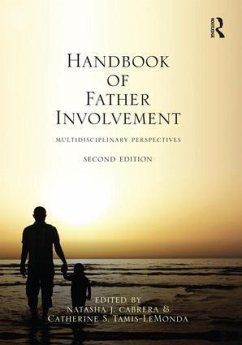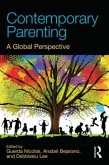This second edition reviews the new research findings and theoretical advances on fathers, families, child development, programs, and policies that have occurred in the past decade. Contributors from a range of disciplines and countries showcase contemporary findings within a new common chapter structure. All of the chapters are either extensively revised or entirely new. Biological, evolutionary, demographic, developmental, cultural, sociological, economic, and legal perspectives of father involvement are described along with policy and program implications. Now with a greater international perspective, this edition considers demographic shifts in families in the United States and Europe. All chapters now follow a common structure to enhance readability and interdisciplinary connections. Each chapter features: Historical Overview and Theoretical Perspectives; Research Questions; Research Methods and Measurement; Empirical Findings; Bridges to other Disciplines; Policy Implications; and Future Directions. In addition, each chapter highlights universal and cultural processes and mechanisms. This structure illuminates the ways that theories, methods, and findings are guided by disciplinary lenses and encourages multidisciplinary perspectives. This extensively revised edition now features: * Expanded section on Biological and Evolutionary Perspectives that reviews fathering in animal populations and the genetic and hormonal underpinnings that feed into fathering behaviors within and across species. * New section on Economic and Legal Perspectives that addresses the economics of fatherhood, marriage, divorce, and child custody issues, and family dispute resolution. * New section on Child Development and Family Processes that covers topics on father-child relationships, the father' role in children's language, cognitive, and social development, and father risk, family context, and co-parenting. * Separate chapters on Black, Latino, and Asian American fathers. * Now includes research on cohabitation and parenting, gender roles and fathering, intergenerational parenting, and fatherhood implications for men in the section on Sociological Perspectives. * The latest demographics, policies, and programs influencing father involvement in both the US and Europe. * Coverage of methodological and measurement topics and processes that are universal across ethnic groups and cultures in each chapter. Intended for advanced students, practitioners, policymakers, and researchers interested in fatherhood and family processes from a variety of disciplines including psychology, family studies, economics, sociology, and social work, and anyone interested in child and family policy.
Bitte wählen Sie Ihr Anliegen aus.
Rechnungen
Retourenschein anfordern
Bestellstatus
Storno








